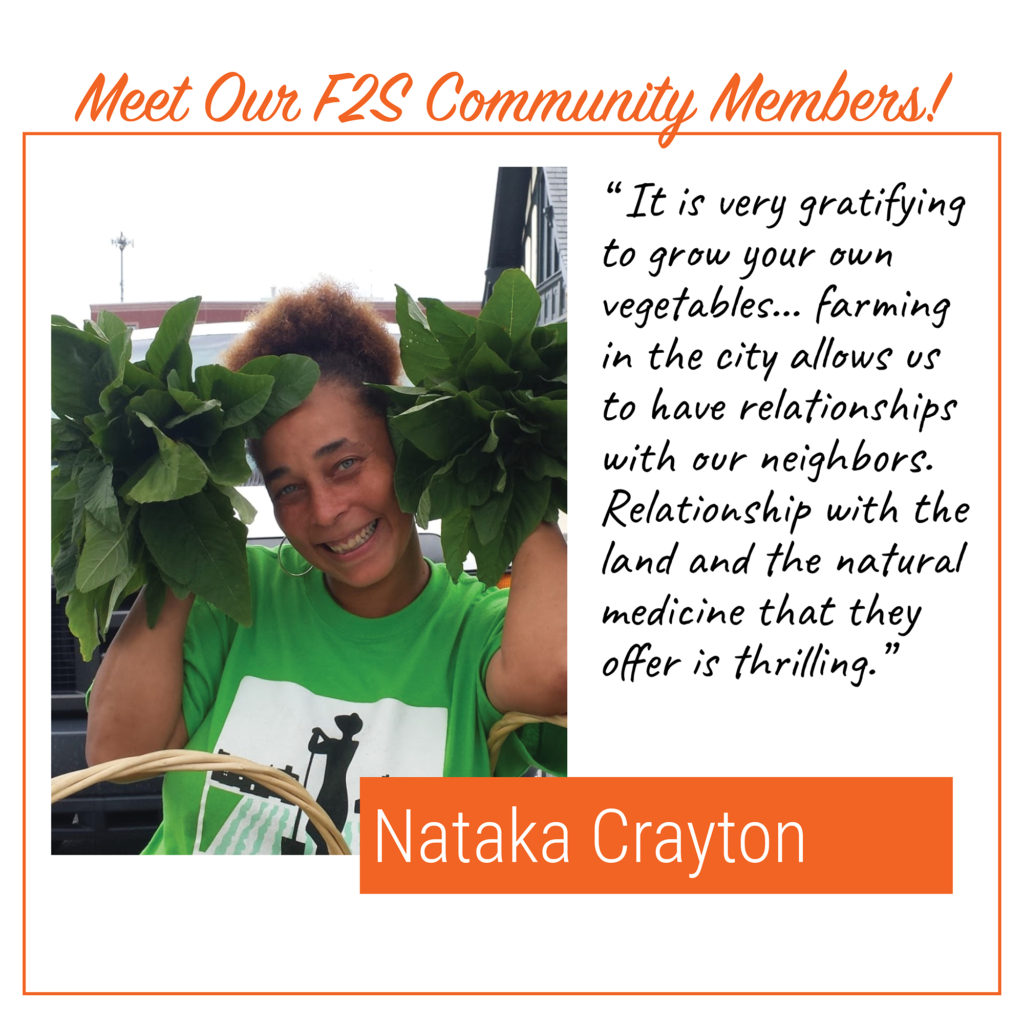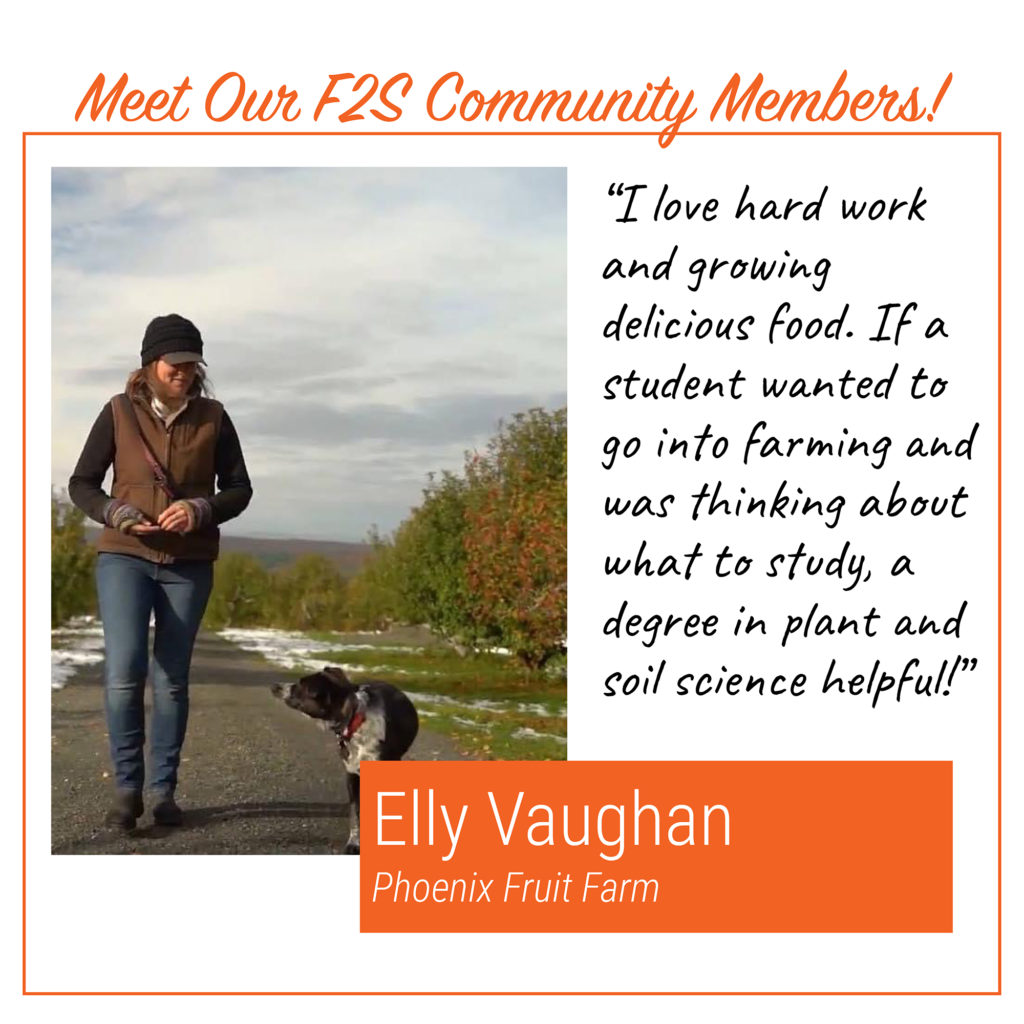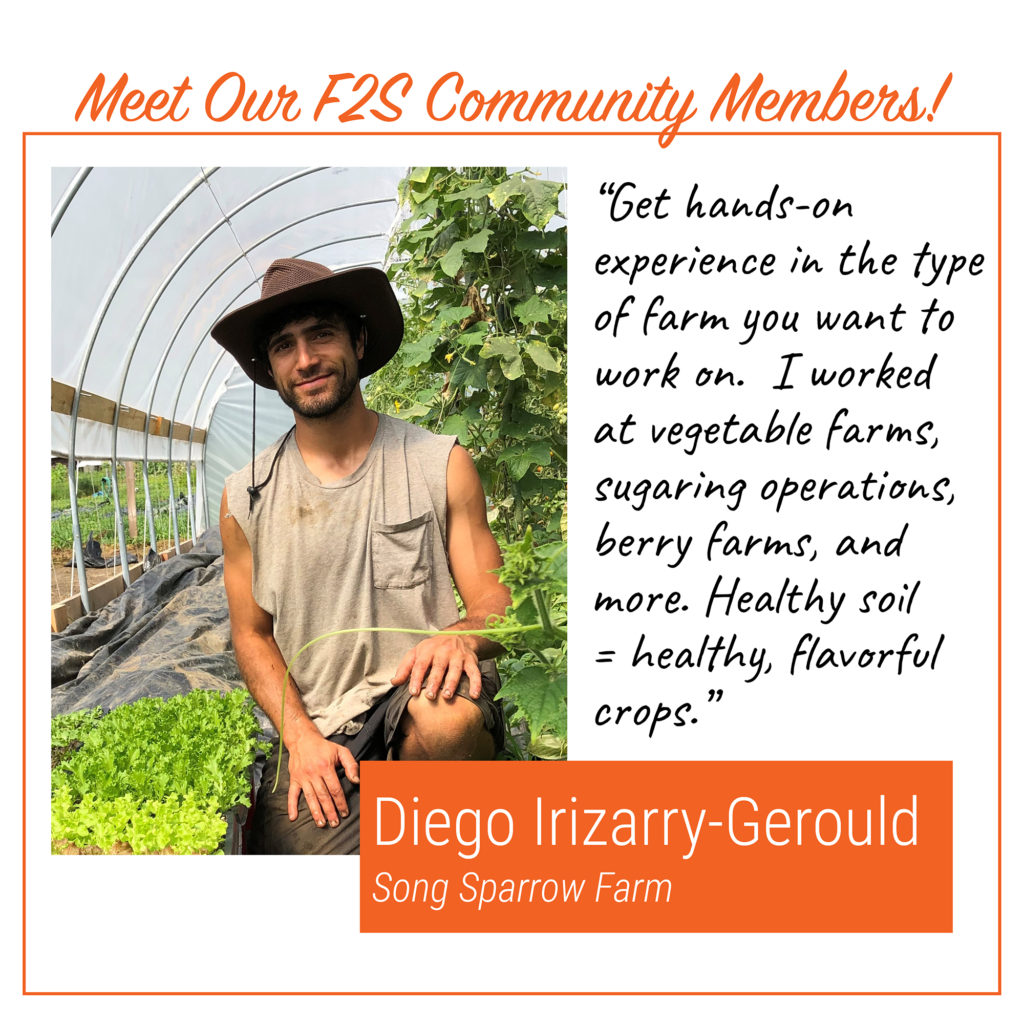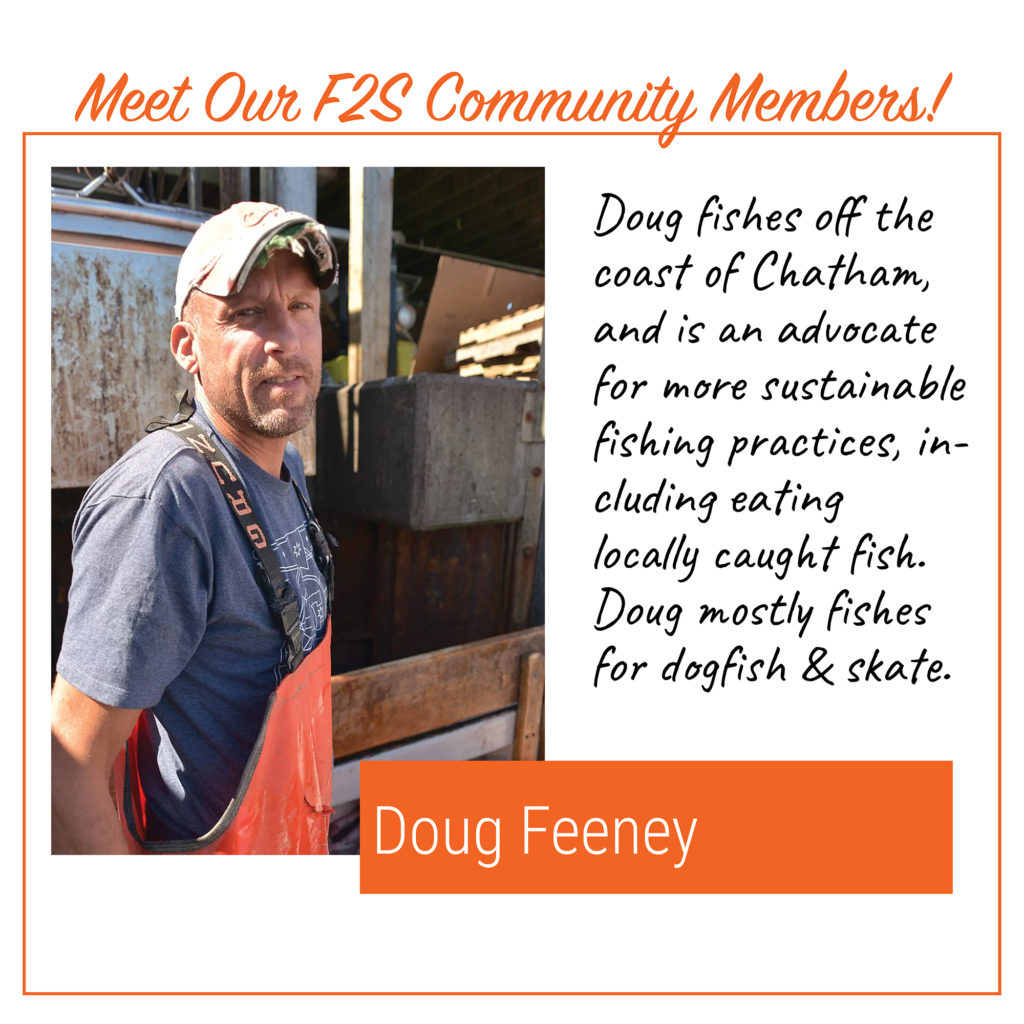Read on below to hear from Nataka Crayton, Elly Vaughan, Diego Irizarry-Gerould, and Doug Feeney.

Nataka Crayton
Farmer, Boston
How many acres do you farm?
We have six different small farm sites in Boston. They are each about a quarter of an acre.
What crops do you grow on your farm?
We grow lots of crops on our farm. Some of them are carrots, lettuce, kale, collard greens, peppers, okra, summer squash, calallou and lots of herbs like basil and thyme.
What is your favorite variety of crop?
Calallou has become one of our new favorites. It is known throughout Africa, Asia and the Carribean. Though it is used as a green vegetable in many of those places and cooks down like spinach, in Haiti, calallou is a dish. They actually call calallou, spinach.
Where do you sell your products?
Before COVID we sold to many restaurants. Now, we primarily sell via online sales, at our Farmstand and give away a lot of produce to individuals and families in need.
How did you get into farming, and why?
I first started out as a gardener. Me and my husband thought it would be great to have a Farmstand in our neighborhood which was primarily people of color. At that time we could not find a farmer to come and sell produce. So, we became farmers.
What types of things would a student need to study if they wanted to get into farming?
Healthy soil, healthy vegetables. There is lots of information on the internet and good books to read on soil. Understanding the climate you live in and the conditions plants need to have to be happy and healthy. Learning about the communities you serve are important. So, I guess learning how to have healthy relationship with people is important too.
If a student wanted to be a farmer, what advice would you have for them?
Be patient, start off simple, and build a team of people who can help you succeed. Definitely create a plan.
Anything else you want to share about your work or farm?
It is very gratifying to grow your own vegetables. I enjoy the community we are in and farming in the city allows us to have relationships with our neighbors. Relationship with the land and the natural medicine that they offer is thrilling. We did not know that there is so much in your backyard that people call weeds but can be food and medicine.

Elly Vaughan
Farmer, Phoenix Fruit Farm
On my farm I grow 20 acres of apples, 8 acres of peaches, and a couple acres of mixed nectarines, pears, strawberries, asparagus, pumpkins. I also have a high tunnel with early tomatoes, cucumbers, and squash. My favorite crop is peaches! Our farm sells through our farm store, Pick Your Own for people who want to come pick peaches, and wholesale to local grocers.
I got into farming when working on farms during college. I love hard work and growing delicious food. If a student wanted to go into farming and was thinking about what to study, I can share that I got a Bachelor’s degree in plant and soil science and I found it helpful. I will say taking some business and accounting courses would have been useful while I was in school, too. I took some courses on my own in these subjects when I was working on starting my farm business. Anyone who wants to start their own farm should double their expense projections in their first three years. Whatever they think they have to spend, expect it to be more and plan on that.
And if anyone wants experience working on a farm, my farm is looking for weekend PYO help!

Diego Irizarry-Gerould
Farmer, Song Sparrow Farm
Song Sparrow Farm is now 8/10 of an acre, but only half of an acre is currently in production. The rest is slowly being prepped for next year. The farm specializes in salad mix, and also grows lettuce, kale, cherry tomatoes, slicer tomatoes, heirloom tomatoes, carrots, garlic, parsley, cilantro, radishes, hakurei turnips, arugula, and scallions. This year the farm is growing a wider variety of crops than usual as we scale up the CSA. More summer squash and zucchini, winter squashes, peppers, eggplants, herbs, swiss chard, snap peas, spinach.
Farmer Diego Irizarry-Gerould loves growing carrots because fresh, well-grown carrots in good soil taste incredible. Heirloom tomatoes are also a lot of fun and delicious. He likes growing scallions as well because they're easy to grow abundantly and they are quick to harvest and wash. Diego sells the crops to local grocery stores and bakeries and restaurants. The farm also has a 31-member CSA that we started during COVID when the restaurants started shut down and have continued and expanded since last year. Diego was inspired by a permaculture course in college, and knew he wanted to work outdoors and with his hands. He started working on different farms in this area and fell in love with it. In 2017 when he had the opportunity to lease some land to start farming on his own, he jumped on the chance!
Diego’s advice for future farmers:
“Get hands-on experience in the type of farm you want to work on. I worked at vegetable farms, sugaring operations, berry farms, and more. No amount of study beats direct experience. Other skills that are really helpful in farming are basic carpentry, plumbing, electrical.
Even though direct experience is best, read books and watch videos of the farmers that are doing what you want to do. There's a ton to learn. Go for it. There are many types of farms. Find the type that suits you. Even types within types: a small, intensive "market garden" farm like mine is very different than a large tractor-based vegetable farm, even if we grow the same things. Also don't buy the myth that to make it farming you have to work insane hours. True, you'll usually have to work a lot and get up early. But you have to take care of your mind and spirit and body as well. That means having time off the farm as well. I've set up my business so that it works for me! Another thing is that my farm is no-till. That's for soil protection, and it has a host of other benefits as well. Healthy soil = healthy, flavorful crops. As we go deeper into climate change we need farms that are taking care of the soil.”

Doug Feeney
Fisherman, Cape Cod
Doug Feeney fishes 15 miles off the coast of Chatham, Massachusetts in a place referred to as “Crab Ledge” aboard his fishing vessel Noah. In his 26 years of fishing, he has seen the decline of our state’s fisheries, and is an advocate for more sustainable fishing practices, including eating locally caught fish. Doug mostly fishes for dogfish and skate, some of which he sells dockside off of his boat and to a wholesaler called Red’s Best. To encourage more people to eat dogfish, he’s developed products such as a Noah Burger and fish sticks, which are available in some school cafeterias.
Phone: (413) 253-3844
Email: info@massfarmtoschool.org